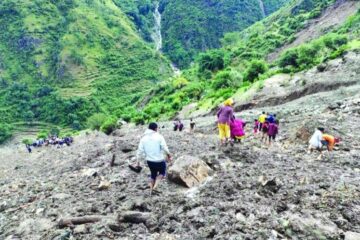The current political environment of Bangladesh is shrouded in thick fog. Because of while the student-Popular Movement calls against reserving seats for government services. Later, the situation called for the fall of the government, and the student-popular movement raised its voice against the government.
It seems to me that, there was no specific outline of which direction the country would go after the fall of the fascist government. The process of creating a structure was going on in the processions of the people. Even there, no party was able to give any outline to take the country forward collectively.
Everyone says that a participatory government, consultation, and transparency are the main issues of today’s politics. Some say that the name of the country should be changed, while others say that the national anthem should be changed.
It was a movement to expel the British from this country. That movement did not talk about the division of Pakistan and Hindustan. It was a British uprising. As the wheels of the political chariot turned, two countries were born. However, the plan to create a country along with the anti-British movement was carried out. Pakistan was very weak there. Because they did not think that they would get a separate independent state. On the other hand, India took itself to a planned position through various small rebellions. First, they started transforming the people into skilled manpower. They tried to bring about a national unity of about 31 languages. Which can be called the unity of culture and they were able to unite these multilingual people with a sense of Indian nationality. Which we could not. We could not do it after 71, we could not do it in 75, 91, and even now. We are dividing Bengalis into 2 parts in religious terms. In this religious atmosphere, we did not give as much attention to creating skilled manpower, Bengali culture and nationalism. Even today we cannot find whether we are Bengalis or Bangladeshis. We are hillmen or Bangladeshis. After walking for 53 years, we are still finding our address.
But time is passing. Now no party can give us a clear path. We are all wandering around in search of a bright path.
Some say that a participatory government, consultation, and transparency are the talking points of today’s public policy. Now is the time to develop them even more.
Strengthening the relationship between government and its citizens for democracy may seem like such an obvious priority that it needs no further elaboration. Yet governments everywhere have been criticized for being distant from, not paying enough attention to, and not participating in, their citizens.
Involving citizens in policymaking allows governments to tap into new sources of ideas, information, and resources when making decisions. All well and good in theory, but where do you start in practice? While it doesn’t have all the answers, a new book from the OECD, Citizens as Partners, examines the issues, the experiences of different countries, and sheds some light on the way forward.
The starting point is clear. To effectively involve citizens in policymaking, governments must invest sufficient time and resources in building strong legal, policy, and institutional frameworks. They must develop and use the right tools, ranging from traditional opinion polls of large populations to consensus conferences with small groups of ordinary people. But experience has shown that without leadership and commitment across the public administration, even the best policies will have little practical impact.
The key ingredients for involving citizens in policymaking are at hand, including information, consultation and public participation. The information provided must be objective, complete, relevant, easy to find and understandable.
Legal rights to consultation and active participation are less visible. In some countries, such as Canada, Finland and Japan, governments are required to consult citizens to assess the impact of new regulations. But being informed in advance is not enough; if governments want people to spend their time consulting, they must be held accountable for the use of that input in policymaking and explain their decisions later.
But what happens once these rights are in place? Scheduling public consultation is essential. Indeed, it should be done as early as possible in the policy process. After all, people are more likely to be angry and frustrated that their opinions are sought after a decision has been made than if they were not consulted at all.
The current difficult political and economic environment calls for the return of government, not only as a regulator and mediator, but also as a key partner in a free market economy, as a provider of security, emergency services, and defense. But its role in fostering political and social cohesion in our civilization has not been sufficiently emphasized. In the current turmoil, it should not be forgotten that the strength of democracy lies in its active and conscious lies in citizens. Governments can no longer provide incomplete information or simply ask people for their opinions, which is realistic.
And while a reassertion of the role of government is welcome, it would be unwise to return to old models of large, opaque, secretive public institutions. Transparency, public consultation, and participation are more important than ever to improve policy and strengthen democracy and stability. Promoting open and transparent government while ensuring security, privacy, and civil liberties is a major challenge of our time.
Naresh Madhu
Pabna.observer@yahoo.com

